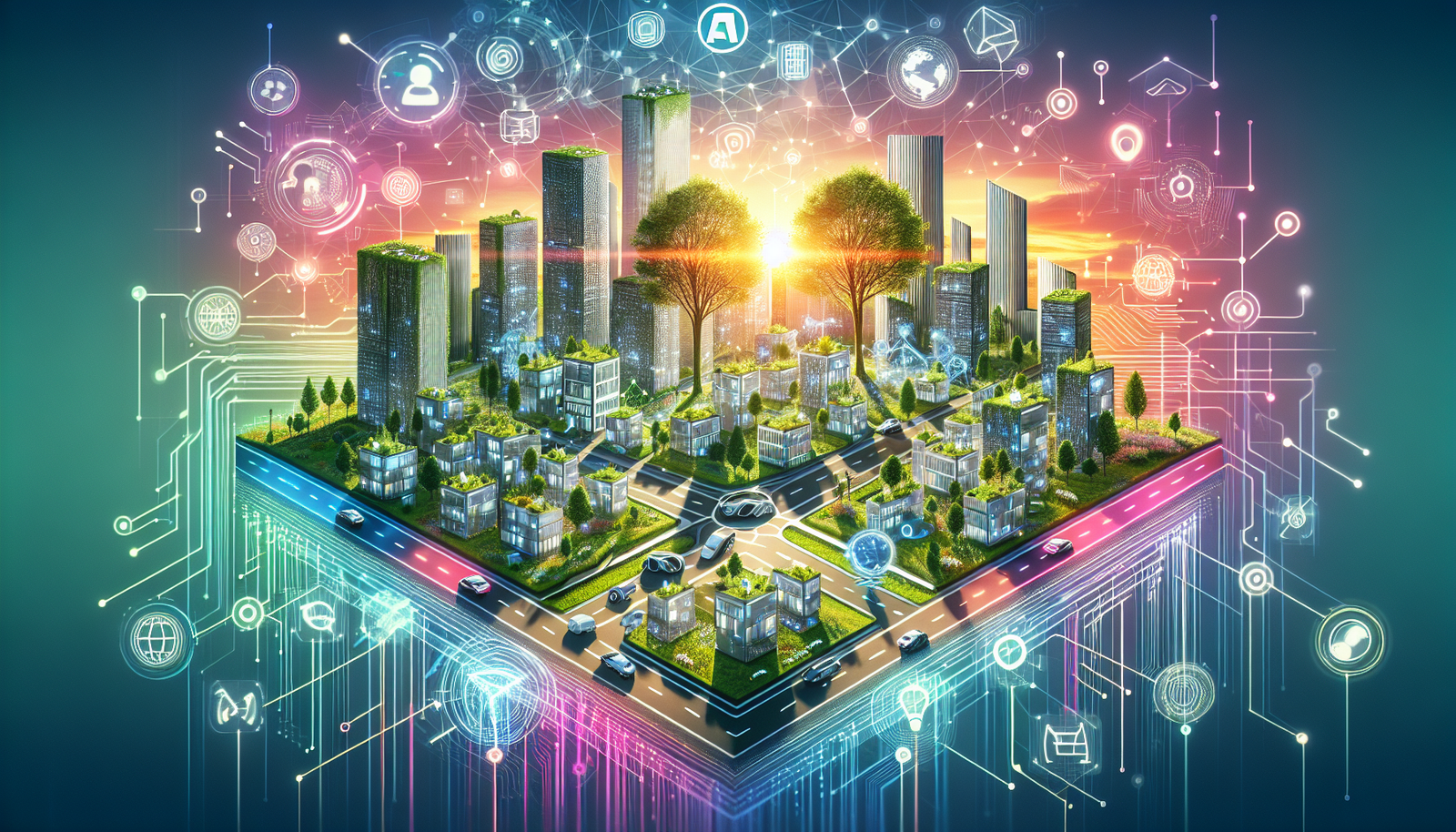The Future of Urban Planning: Embracing AI in City Development
Intro (Hook)
Urban environments are rapidly evolving, and at the forefront of this transformation is AI urban development. Imagine cities that adapt seamlessly to the needs of their inhabitants, utilizing technology to enhance daily life and sustainability. The fusion of artificial intelligence with urban planning heralds a new dawn in how we conceptualize smart cities. As society embraces the opportunities presented by AI, the potential for revolutionary change in urban landscapes becomes increasingly tangible.
Background
Urban planning has traditionally relied on human intuition and manual data analysis. However, the integration of AI infrastructure is revolutionizing this field. According to a report by the McKinsey Global Institute, cities that leverage AI analytics can enhance their operational efficiency by up to 50% (source: McKinsey & Company).
From predictive analytics to real-time decision-making, AI empowers city planners with tools that enhance efficiency and innovation. As cities grow and face unprecedented challenges—from population density to climate change—understanding the implications of technology integration becomes paramount. The shift toward AI-enabled governance allows for data-driven solutions to complex urban issues, promoting more sustainable practices and improved public services.
Consider how weather forecasting has transformed agriculture. Just as farmers now utilize data analysis to optimize crop yields, urban planners can use AI to predict and respond to city needs, adapting to changing conditions and enhancing the quality of urban life.
Trend
The current trend in urban planning signifies a shift towards smart cities—environments that leverage advanced technologies such as IoT (Internet of Things), big data, and AI to create urban spaces that are responsive and efficient. These innovations are not just about convenience but aim to enhance livability. Here’s how AI makes a significant impact:
– Traffic Management: AI systems can analyze traffic patterns in real-time to optimize flow, reducing congestion and improving air quality.
– Energy Management: Smart grids powered by AI can predict energy consumption cycles, optimizing the supply and reducing waste.
– Waste Management: Intelligent waste collection systems can analyze bin capacity, ensuring timely pickups and reducing costs.
These implementations align with the goals of sustainable urban development, demonstrating that integrating technology into city planning is not just beneficial; it is essential for the modern urban environment.
Insight
As we delve deeper into the role of AI in urban planning, it becomes clear that AI urban development is not merely a trend but rather a necessity for future city landscapes. Insights drawn from current implementations show that cities integrating AI are seeing enhanced citizen engagement and better overall quality of life.
For instance, cities like Barcelona and Singapore are already utilizing AI-driven platforms to gather feedback from residents, allowing for a more participatory approach to planning processes. By understanding user behavior, cities can tailor services, making urban living more intuitive and responsive.
In this vein, one can think of AI as the brain of a living organism, coordinating various systems—transportation, energy, and communication—to function harmoniously. As citizens become more connected to these systems, the feedback loop strengthens, enhancing the quality of life for all.
Forecast
Looking ahead, the potential of AI infrastructure in urban development is immense. Forecasts suggest that by 2030, city planners will rely heavily on predictive AI systems that analyze vast amounts of data. These systems will not only foresee challenges but also actively help optimize city resources proactively.
Consider this: cities could eventually predict spikes in population in certain areas based on historical data and seasonal trends, allowing for timely infrastructure adjustments before crises occur. As cities continue to expand, the role of AI in shaping these landscapes will be pivotal, ensuring smart cities are not just technologically advanced but also socially equitable.
Furthermore, as highlighted in a report by PwC, the economic benefits might amount to $20 trillion in global economic impact, driven by enhanced efficiency, productivity, and quality of living (source: PwC). The future of urban spaces lies at the intersection of technology and human experience, a fusion that promises to transform the way we live, work, and interact within our urban environments.
CTA (Call to Action)
Are you ready to embrace the future of city living? Stay informed on the latest advancements in AI urban development and how they could shape your community. Join our newsletter today for insights and updates on the evolution of smart cities! The future is not just coming; it is already here, shaping our urban jungles into thriving ecosystems that prioritize both people and prosperity.

